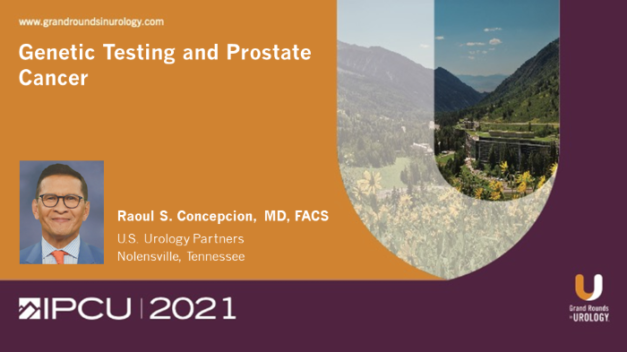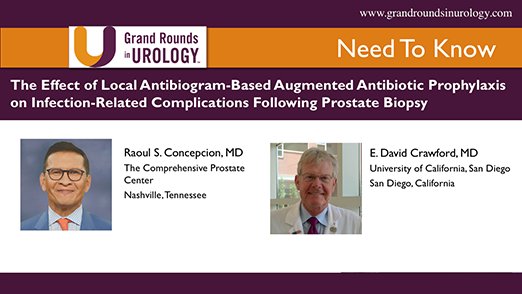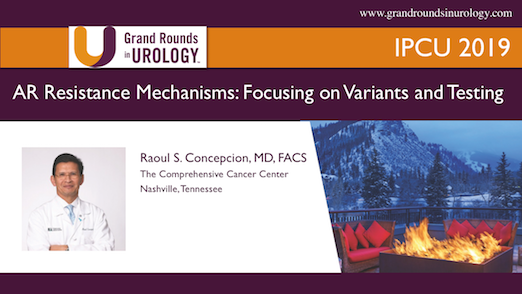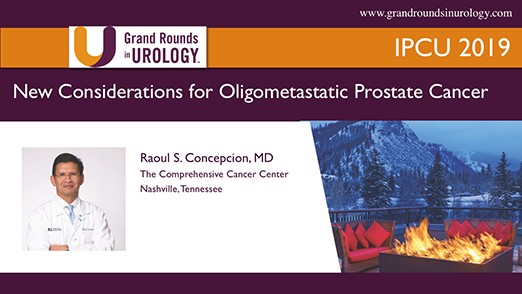Genetic Testing and Prostate Cancer – Welcome
Raoul S. Concepcion, MD, FACS, Chief Science Officer of U.S. Urology Partners in Nolensville, Tennessee, discusses genomics and DNA repair within the context of prostate cancer treatment to demonstrate the ability of next generation sequencing (NGS) to improve patient outcomes. He begins by giving basic definitions of genetics, genomics, and the genome before sharing data that supports an argument for performing genetic testing. Dr. Concepcion reviews studies on several related topics that all show higher rates of germline mutations in patients with metastatic and/or high-grade cancer. Dr. Concepcion explains that the link between germline mutations and higher rates of metastatic and higher-grade cancer shows that understanding DNA mutations and genomics can improve treatment. He then gives an overview of genomics, explaining how genetic code is formed and behaves and the different types of DNA mutations. He also gives an example of a pathogenic report expressing a nonsense mutation. Dr. Concepcion reviews the American College of Medical Genetics and Genomics (ACMG) classification system and how including testing as a part of treatment plans will improve that system. He then discusses the Knudson “two-hit” model hypothesis, presents data demonstrating that 60% of metastatic cancer patients do not undergo molecular testing, and explains that patients treated with targeted therapies based on genetic testing have 63% longer overall survival than other metastatic patients. Dr. Concepcion concludes by observing that an understanding of modern-day genomics and DNA repair is crucial to improving treatment.
Read More




